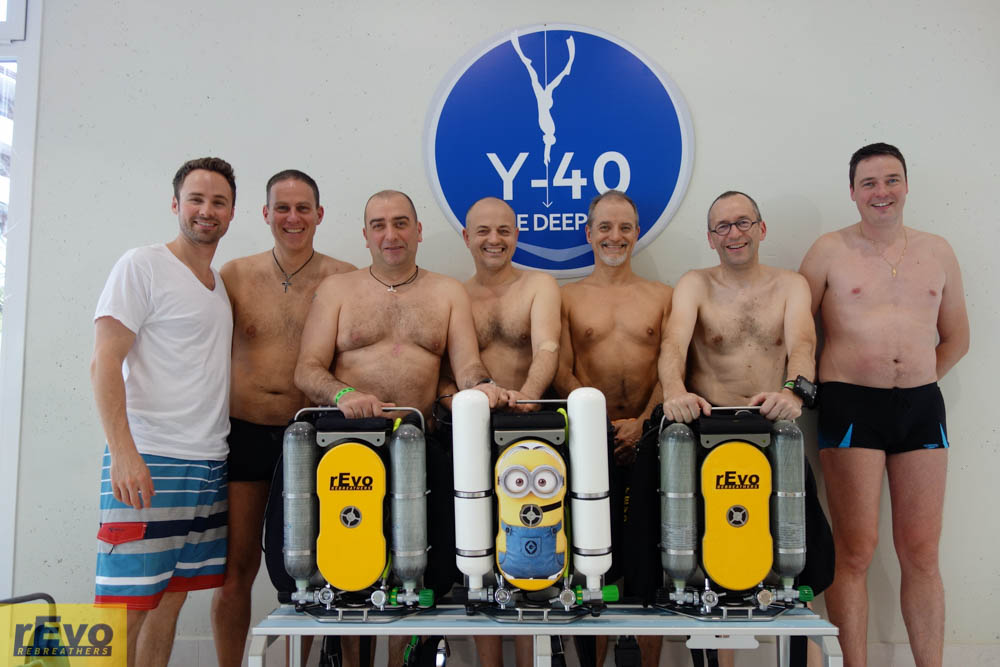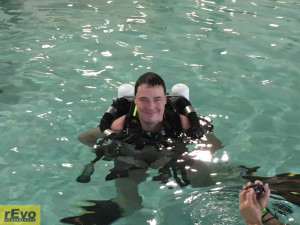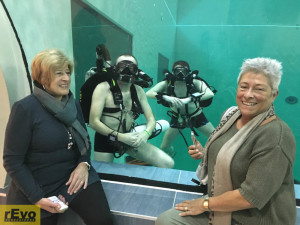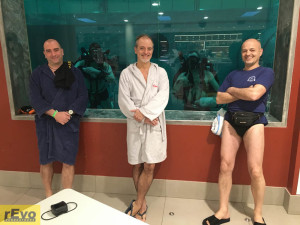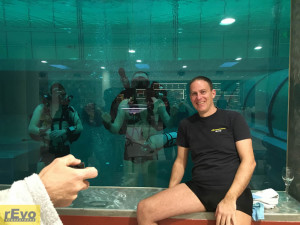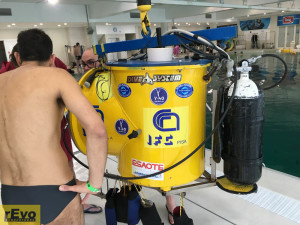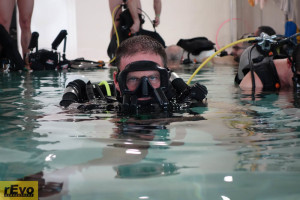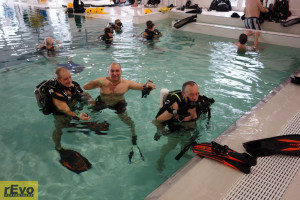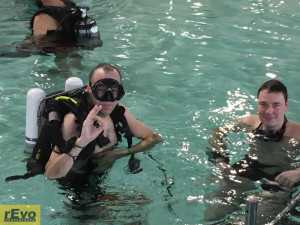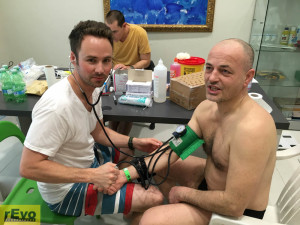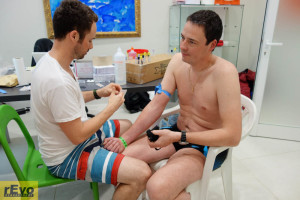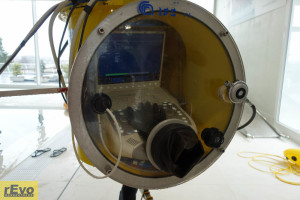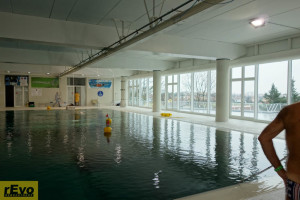Diver safety has always been of paramount importance at rEvo Rebreathers. It is this driving force that not only compelled us to develop a better rebreather, but to also develop a unit with multiple layers of redundancy built into the very core of the design.
Diver safety however does not just stop with the unit itself. It also requires extensive knowledge of diver physiology. It requires an understanding of how the human body performs before, during and after a dive, to get a complete picture of how the combination of both recreational and technical diving can be made as safe as possible for the participants. This can only be done through ongoing research and it is research that drives everything we do at rEvo.
Our approach to the scientific side of diving allowed us a fantastic opportunity this week to take part in an ongoing research project into heart failure during diving. The study, which is being undertaken by Derek B. Covington, M.D. Undersea and Hyperbaric Medicine Fellow at the University of California, San Diego, aims to fully understand the effects of diving on the heart.
Dr Covington is a qualified rEvo Rebreather diver who placed an open “call for assistance” with his study on the rebreather forums and as a company who values research above all else, it was an opportunity that was too good for us to miss.
This phase of the study was to take place at Y-40, the world’s deepest pool diving facility which is located in Montegrotto, Italy, together with the help of Marco Scaccabarozzi, rEvo Rebreather Instructor for Italy and Italian rEvo divers Stefano Casartelli, Fabio Valle and Boris Steficic.
Paul and Pieter from rEvo Rebreathers also joined in to take part.
Initial tests involved a pre-dive medical check, including ultrasound scan and blood testing. Each participant then undertook a dive to a predefined protocol and during the dive itself each diver was given an underwater ultrasound scan.
At the completion of the dive, the procedure was repeated with a complete post-dive medical check, ultrasound scan and blood tests.
As an ongoing, continual study, the results will not be known for some time but whatever the results turn out to be, it will almost certainly add to the growing knowledge we have on diving physiology and contribute to making both technical and recreational diving safer for everyone involved.
In our capacity as not only divers but rebreather manufacturers, we look forward to seeing the results and continuing to be at the forefront of the quest to make diving as safe as possible.
Learn more about rEvo Rebreathers at: http://www.revo-rebreathers.com
Learn more about Y-40 at: http://www.y-40.com/en/



